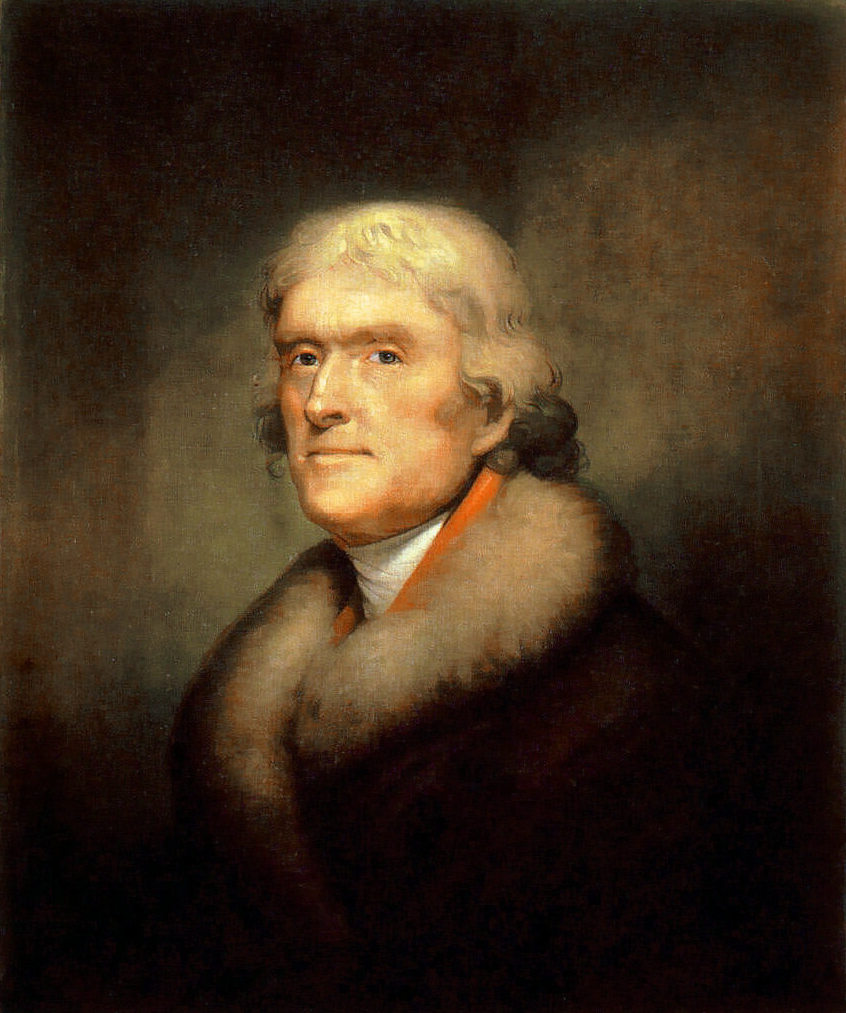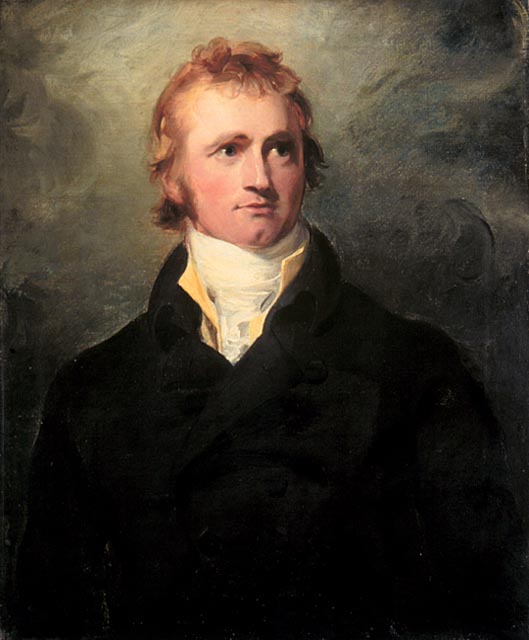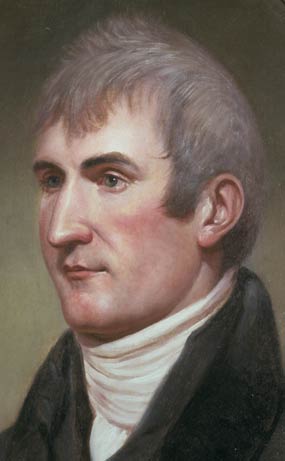While the Election of 1804 had swept the Federalists out of the Executive Mansion, Jefferson had inherited American Louisiana, dubbed the Missouri Territory.
The Far Northwest had been dominated by fur trading companies, first the Hudson Bay Company, and then after the American Revolutionary War, the Northwest Company. While the Hudson Bay Company continued in the fur trading business after the war for a time, but in 1805 it was bought out by the Northwest Company. Prior to this point, most routes explored by the fur trading Northwest Company, had gone up the Saskachewan River and thence across the Continental Divide and along the northern rivers to the Pacific.
Alexander MacKenzie had been the first to find this arduous route in the early 1790s.
Alexander MacKenzie
Jefferson had long had an interest in exploration of the west with special emphasis on passage to the Pacific, and one of the first actions of his presidency was to set up an
exploration of the new American territory, tapping his personal friend and aide,
Meriwether Lewis, to follow the course of the Missouri and discover if possible a route from there to the Pacific. The expedition was able to do so and provided a tremendous amount of information about the new American West, as well as showing a viable southerly route to the Pacific.
Meriwether Lewis
With the development of the Missouri route, the more northerly route along the Saskachewan fell into relative disuse as a means to the Pacific, though it continued to be important for the fur trade east of the Continental Divide.


